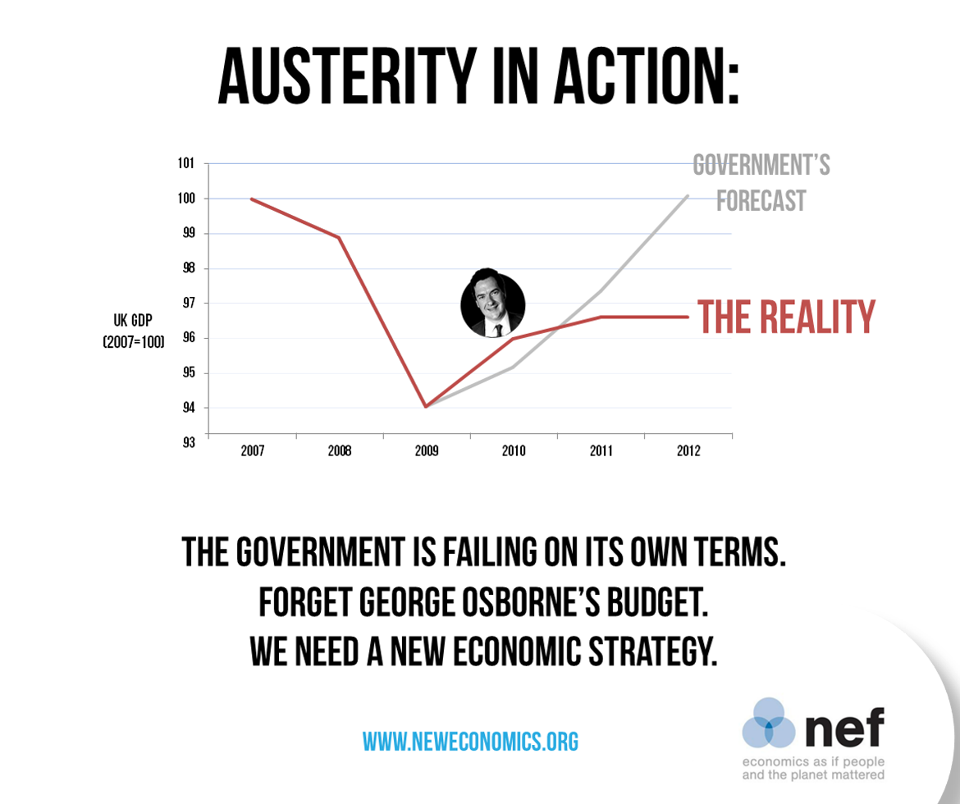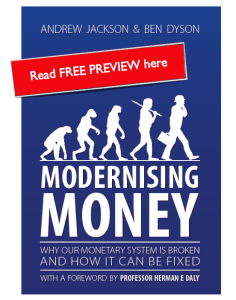Budget: Government slowly moving in the direction of Positive Money

I’ll skip the noise and trivialities about yesterday’s Budget and go right to the two points that are actually of significance.
1. The possibility of money creation by the state
There is still little understanding of the power that banks have to create money and the fact that this got us into the current crisis amongst the top brass in government. This is a shame because once they understand this, the answer to the current economic crisis is remarkably simple.
However, the government’s budget came alongside a “Review of the monetary policy framework”. This is far more interesting than it sounds at first. It explicitly permits the Bank of England to use “unconventional policy instruments” in order to help the government meet it’s policy objectives to “achieve strong, sustainable and balanced growth that is more evenly shared across the country and between industries” [p10]. Although it’s not explicitly stated (NB: we’re still wading through the budget documentation which is several hundred pages to pull out the key points), this is opening the door to allowing something like “QE for the people”. In essence, instead of having the Bank of England creating money through QE and pumping it into financial markets (which may well be the reason why the stock market is reaching new highs even though the economy is still in decline), it would put that money into the real economy by allowing the government to spend it directly.
This is an idea I suggested in my submission to the Treasury Select Committee and would lead to a significant increase in GDP, because all of the new money would be additional spending in the real economy. And Adair Turner, chairman of the FSA, suggested the same in a recent speech.
This is a positive move. If even a portion of the £375bn that has been created via QE had instead been spent into the real economy, the recession would have been well and truly over. The money created could also have allowed ordinary people to start paying down the massive burden of debt (which has increased since the crisis).
Once a precedent is set for the Bank of England creating new money and allowing the government to spend this new money into the economy, it will become clear how beneficial this can be to the real economy. Half of Positive Money’s argument (that the power to create money can be handled more responsibly by the state than by a collection of short-term profit-seeking banks) will have been vindicated.
This then leads on naturally to the question of why would we want to allow the same banks that caused the financial crisis to continue having the ability to create money, when they handle it so badly?
2. The current strategy isn’t working
More QE, and further tinkering with government spending and taxation, isn’t having the effect that the government hoped it would have (unsurprisingly). This chart shows the reality against the government’s original forecasts for growth:

3. Here’s a gift to the government:

It’s all on a plate for the government in the book we produced here.
With Foreword by Prof Herman Daly, Professor Emeritus School of Public Policy University of Maryland, Former Senior Economist at the World Bank
Download FREE PREVIEW (contains Foreword, Summary of key points, Full introduction & First page of each chapter).
Here is a shorter free paper in plain English.
Our proposals explain how to reform banking so that we no longer allow banks to create 97% of our money and put the majority into house price bubbles and financial markets. Instead, we would have an independent, accountable and transparent body managing money creation, and having that money spent into the real economy through government budgets, meaning that instead of pushing up house prices, it ends up in the pockets of ordinary people. The proposals make the banking system much more stable and also allow household debt to fall by up to £1 trillion. It’s much simpler than the policies that have been implemented in the last 5 years alone.
The question is, will the government see sense?